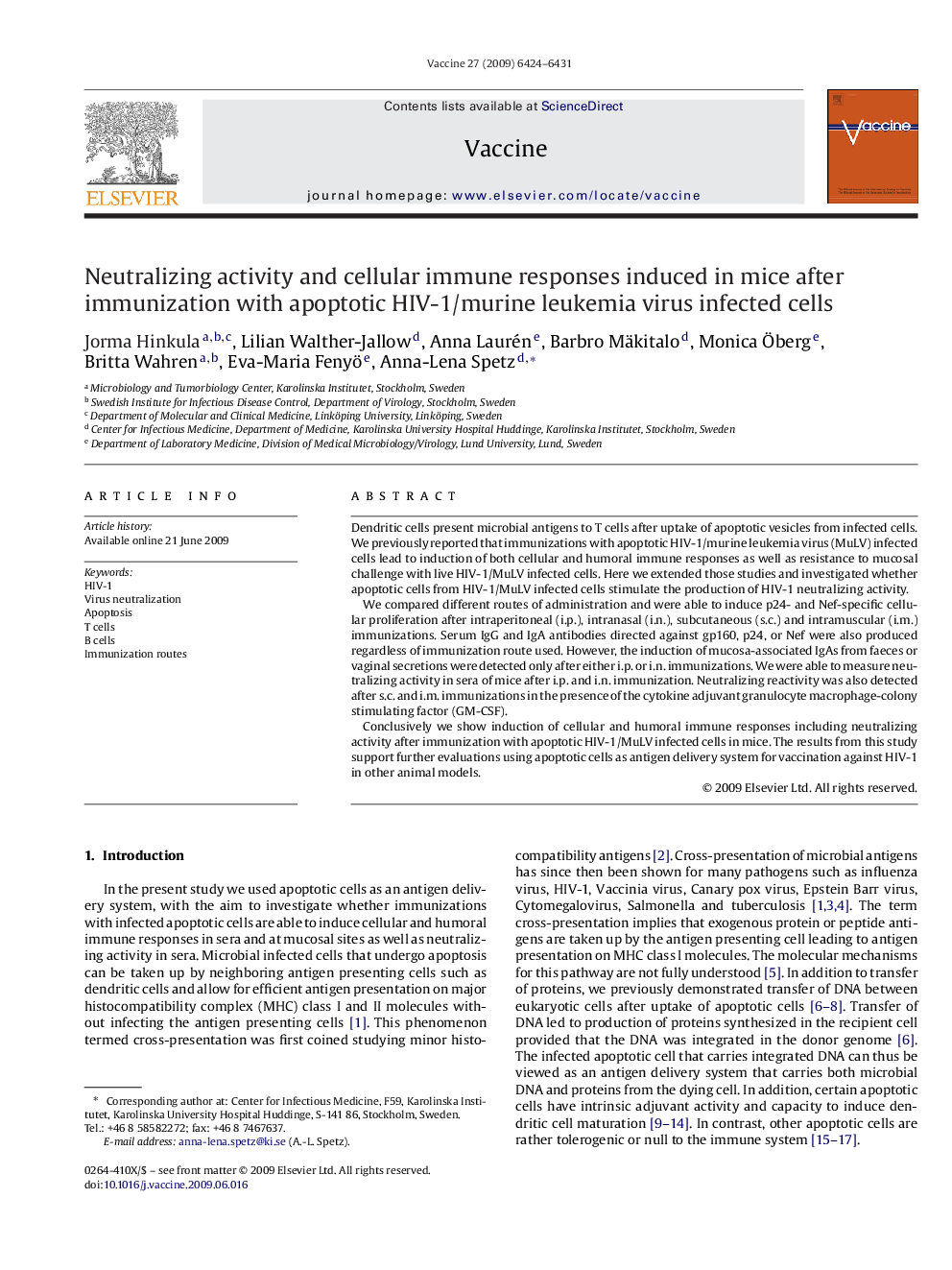| Article ID | Journal | Published Year | Pages | File Type |
|---|---|---|---|---|
| 2405900 | Vaccine | 2009 | 8 Pages |
Dendritic cells present microbial antigens to T cells after uptake of apoptotic vesicles from infected cells. We previously reported that immunizations with apoptotic HIV-1/murine leukemia virus (MuLV) infected cells lead to induction of both cellular and humoral immune responses as well as resistance to mucosal challenge with live HIV-1/MuLV infected cells. Here we extended those studies and investigated whether apoptotic cells from HIV-1/MuLV infected cells stimulate the production of HIV-1 neutralizing activity.We compared different routes of administration and were able to induce p24- and Nef-specific cellular proliferation after intraperitoneal (i.p.), intranasal (i.n.), subcutaneous (s.c.) and intramuscular (i.m.) immunizations. Serum IgG and IgA antibodies directed against gp160, p24, or Nef were also produced regardless of immunization route used. However, the induction of mucosa-associated IgAs from faeces or vaginal secretions were detected only after either i.p. or i.n. immunizations. We were able to measure neutralizing activity in sera of mice after i.p. and i.n. immunization. Neutralizing reactivity was also detected after s.c. and i.m. immunizations in the presence of the cytokine adjuvant granulocyte macrophage-colony stimulating factor (GM-CSF).Conclusively we show induction of cellular and humoral immune responses including neutralizing activity after immunization with apoptotic HIV-1/MuLV infected cells in mice. The results from this study support further evaluations using apoptotic cells as antigen delivery system for vaccination against HIV-1 in other animal models.
